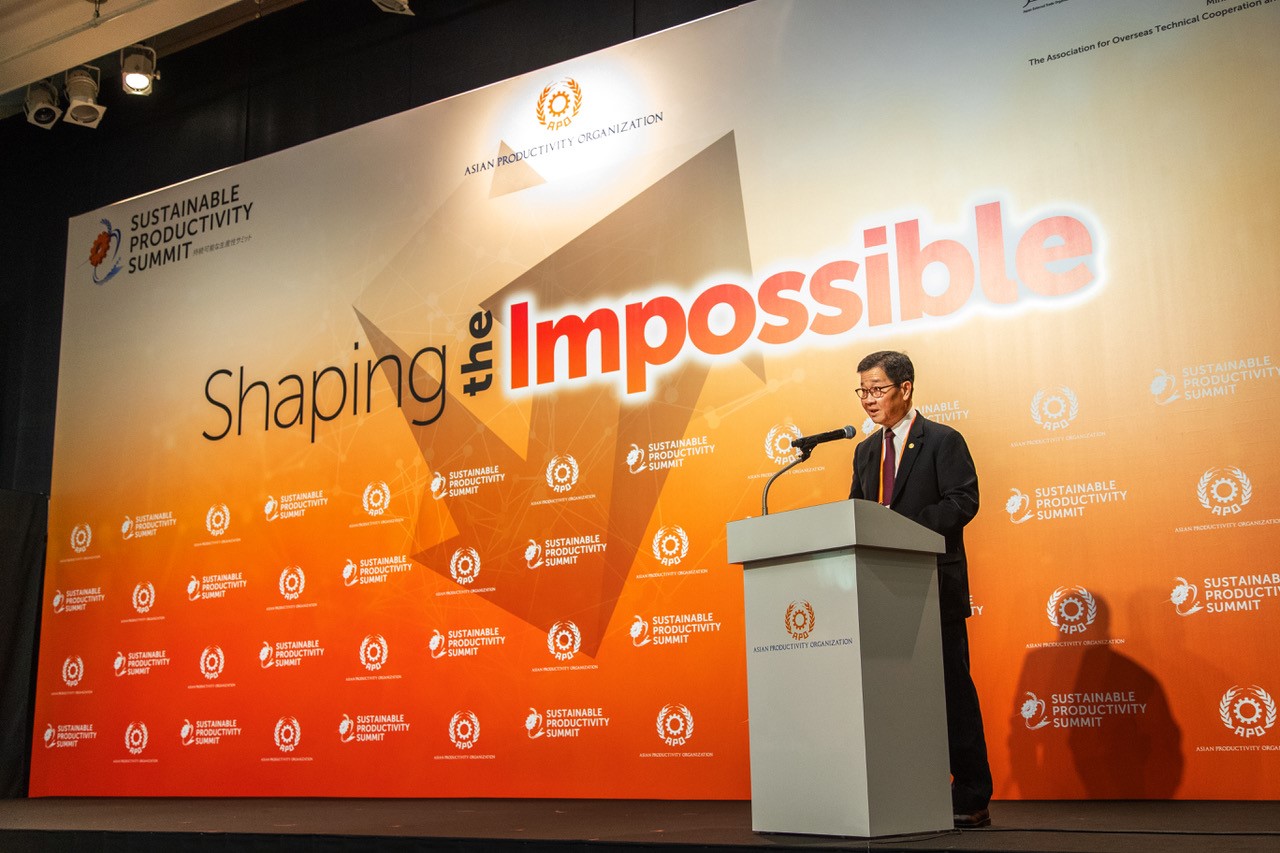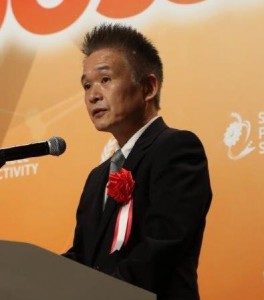
Select Page
In its effort to orient member countries on “the next big thing” and technologies shaping the future of productivity and drive maximum benefits for their economies, the Asian Productivity Organization (APO) organized the first APO Sustainable Productivity Summit in Tokyo, 10 July 2018. The Summit was attended by over 270 senior-level policymakers, researchers, and industry experts from 22 countries, including the APO member economies.
Delivering the welcome note, APO Secretary-General Dr. Santhi Kanoktanaporn stated that accelerating economic and technological changes had generated multiple global challenges ranging from climate change to emerging crises in food, energy, water, financial markets, and the global economy. “At the same time, those changes have also brought development and prosperity to much of the world. Central to this story of change has been productivity, in the form of new ideas, technologies, and skills that drive growth. Productivity will remain the key engine of growth in the future.”

APO Secretary-General Dr. Santhi Kanoktanaporn delivering welcome remarks at the Sustainable Productivity Summit 2018 in Tokyo, 10 July 2018.
With technological changes affecting business performance and productivity at an unprecedented speed, business leaders must constantly update strategies, abandon long-held assumptions, and look beyond established models. Organizations need to act fast, make informed decisions, and fine-tune strategies or policies.
The Secretary-General reported that the APO had set up a Futures Team and started using artificial intelligence (AI) to identify emerging global trends and driving forces to develop initiatives that promote not only traditional productivity but also sustainable productivity. “Corporate leaders and decision makers in government who adopt the business-as-usual approach risk being left behind. We cannot rely only on existing models and expect to remain relevant in the decades to come,” warned Dr. Santhi.

Ministry of Foreign Affairs of Japan International Cooperation Bureau Deputy Director General Dr. Minoru Masujima delivering opening remarks at the Sustainable Productivity Summit 2018 in Tokyo, 10 July 2018.
In his opening remarks, Deputy Director General Dr. Minoru Masujima of the International Cooperation Bureau, Ministry of Foreign Affairs of Japan, acknowledged that the rise of the Internet of Things, big data, robotics, and AI had resolved social issues by creating innovative businesses and services: “Such innovations contribute not only to efficiency and labor saving but potentially boost productivity through creating totally new added value in Society 5.0.”
Delivering the keynote address, Deloitte Center for Government Executive Director William D. Eggers stressed that good government mattered a great deal when it came to a nation’s productivity. “It can either deter it or help to accelerate it,” he said, adding that, “In an age of exponential technologies, governments need to close the growing gap between how the private sector is adopting these technologies and transforming work and how the public sector now operates.”
“Governments around the world are wrestling with how to regulate technologies like AI, drones, and autonomous vehicles in ways that protect the public but allow companies to innovate. How governments regulate these technologies will have a big impact on how the technologies progress,” he concluded.
The APO Sustainable Productivity Summit was followed by a two-day Strategic Planning Workshop where APO Directors and Heads of National Productivity Organizations reviewed specific requirements and draft future development programs.

(L–R) Deloitte Center for Government Executive Director William D. Eggers, TransPod Inc. Co-Founder and Chief Technology Officer Ryan Janzen, KTH Royal Institute of Technology Department of Industrial Economics and Management Associate Professor Dr. Niklas Arvidsson, Tiny Farms Inc. Chief Executive Officer Andrew W. Brentano, and Panasonic Corporation SST Management Team Manager of the Business Solution Division Takeshi Arakawa.
Speakers at the Summit included Ryan Janzen, Co-Founder and Chief Technology Officer, TransPod Inc., on the impact of emerging technologies such as the hyperloop and tube transport; Dr. Niklas Arvidsson, Associate Professor, Department of Industrial Economics and Management, KTH Royal Institute of Technology, on key factors in the development of a cashless society; Andrew W. Brentano, Chief Executive Officer, Tiny Farms Inc., on alternative options to conventional crops and practices; and Takeshi Arakawa, SST Management Team Manager of the Business Solution Division, Panasonic Corporation, on sustainable smart towns and smart homes.